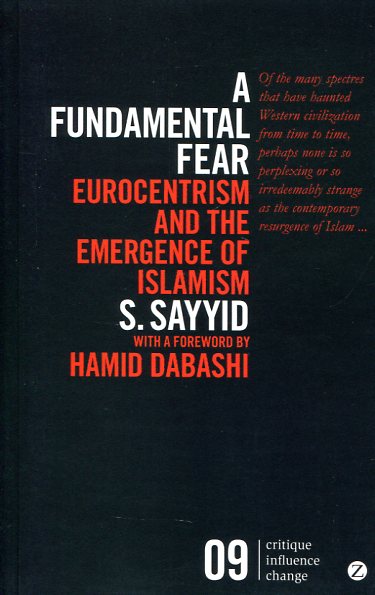Thinking through islamophobia
global perspectives
- ISBN: 9781850659907
- Editorial: C. Hurst & Co. Ltd.
- Fecha de la edición: 2010
- Lugar de la edición: London. Reino Unido
- Encuadernación: Rústica
- Medidas: 23 cm
- Nº Pág.: 319
- Idiomas: Inglés

Eds. Salman Sayyid, Abdoolkarim Vakil. Since September 11 the term Islamophobia has entered common parlance across the globe. Widely used but diversely and inconsistently defined and deployed, Islamophobia remains hotly disputed and frequently disavowed both as word and concept. To its supporters it names a defining feature of our times and is an important tool to highlight injustices faced by and specific to Muslims, but its effectiveness is weakened by lack of agreed meaning and of clarity in relation to such terms as racism and orientalism. To its detractors Islamophobia is either a fundamentally flawed category or, worse, a communitarian fig leaf behind which 'backward' social practices and totalitarian political ambitions are covered up. The backdrop to these debates and more generally to the mobilizations and contestations, to which they give expression, is a succession of 'moral panics' centred on the figure of the Muslim. Adopting a global perspective this collection is conceptually framed in terms of four arenas which provide the four distinct contexts for the problematization of Muslim identity, and the ways in which Islamophobia may be deployed. Drawing on diverse fields of disciplinary and geographical expertise twenty six contributors address the question of Islamophobia in a series of interventions which range from large and sustained arguments to illustrations of particular themes across these contexts: 'Muslimistan' (broadly the OIC member countries); states in which Muslims either form a minority or hold a socio- economically subaltern position but in which the Muslim minority cannot be easily dismissed as recent arrivals (such as India, Russia and China as well as Thailand); lands in which Muslims are represented as newly arrived immigrants (Western plutocracies), and the regions in which the Muslim presence is minimal or virtual and the problematization of Muslim identity is vicarious. Rejecting both uncritical transhistorical uses of the term Isl
Eds. Salman Sayyid, Abdoolkarim Vakil








